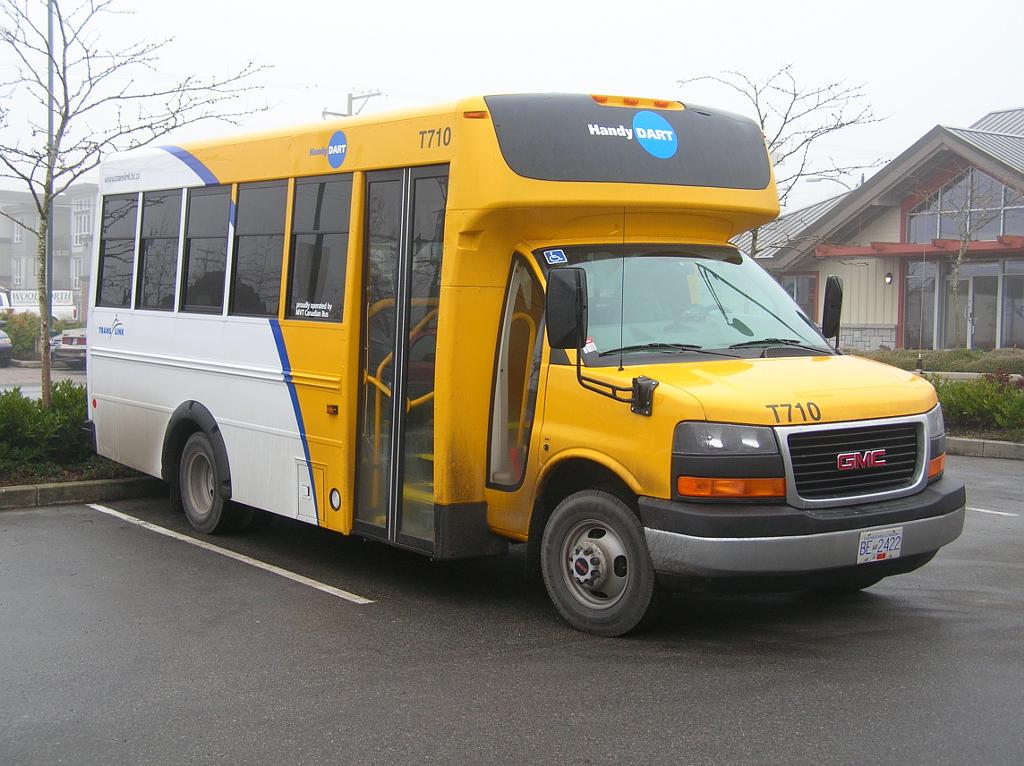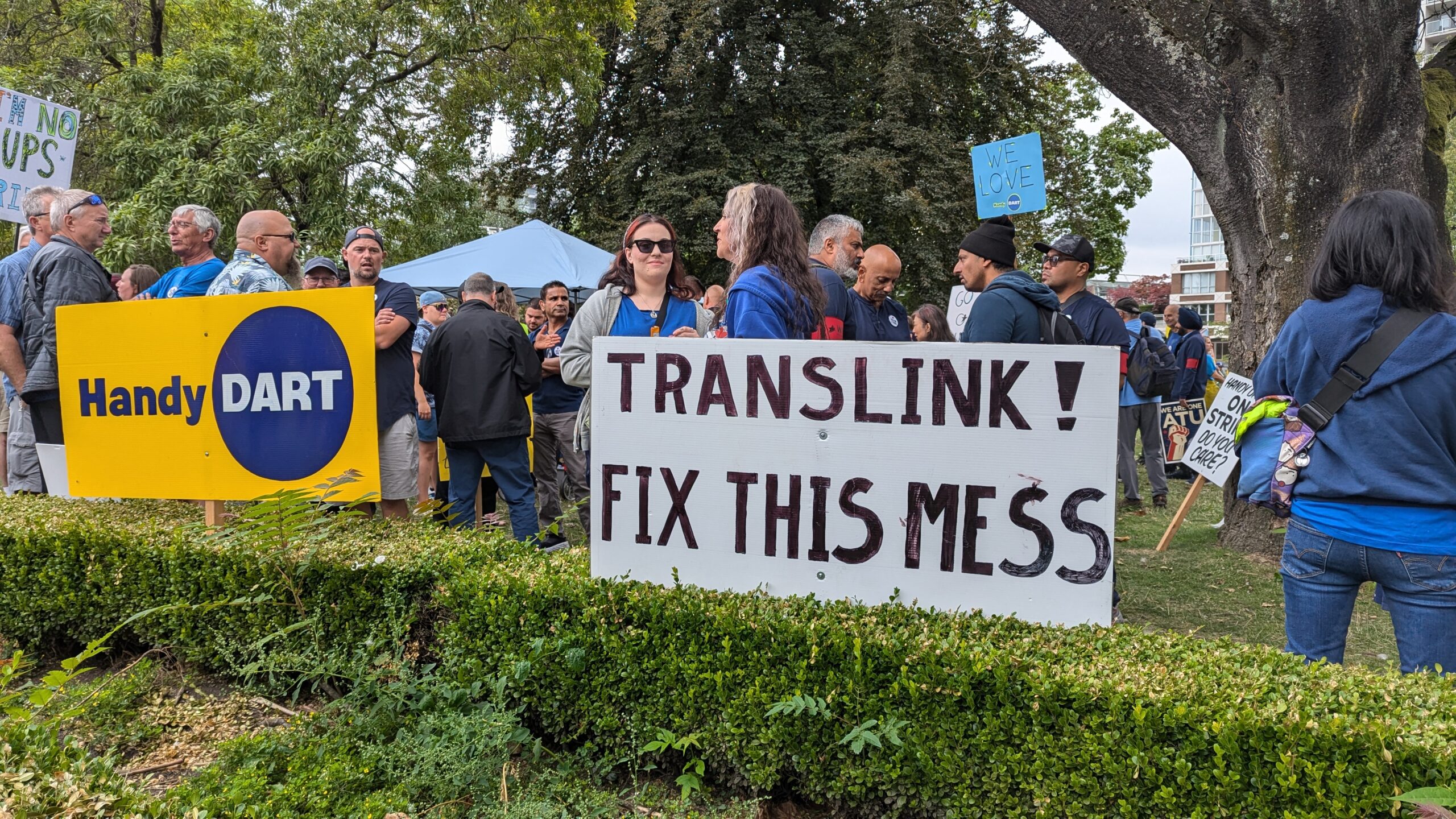HandyDart employees in the Lower Mainland of British Columbia have been on strike since Tuesday, September 3rd against French multinational Transdev. Workers are demanding wage parity with other paratransit and transit operators in the region, which could represent up to $6.00 an hour compared with another municipality, as estimated by a worker on the picket line.
In July, HandyDart workers in the Fraser Valley completed a 124-day strike, winning a significant wage bump from First Transit, a subsidiary of the same multinational corporation, Transdev. This created a large pay gap between workers doing the same job for the same employer in adjacent municipalities.
Transdev is contracted by TransLink, the regional transit authority, to provide door-to-door service to seniors, disabled people, and others with mobility challenges. The workers, represented by the Amalgamated Transit Union (ATU) local 1724, include drivers, schedulers and dispatchers.
Handydart's for-profit model, a "failed experiment"
The union is also calling for the end to contracting out of the service altogether, a practice which they argue has hurt both workers and Handydart users.
"Transdev is a private, for-profit company," said ATU 1724 President Joe Mcann, speaking to a rally of HandyDart workers and supporters on the first day of the strike. "HandyDart and our clients is not a model for profit. It doesn't work. It's a failed experiment."
"Transdev is contracted out by TransLink with your tax dollars," he continued. "Profits from those tax dollars do not get reinvested in British Columbia. They do not get reinvested in British Columbians and do not get invested in HandyDart. So, what we've got going on is a failing system that does not take care of itself."

Beth McKellar, a spokesperson for the HandyDart Riders Alliance, a membership group of riders and allies, echoed the call to end the contracting out of HandyDart.
"Of course this strike is egregious. It is egregious that fantastic, courageous folks like yourself had no other choice," she said McKellar pointed out that even some of the mayors who are supposed to set TransLink's strategic direction agree that HandyDart should be "brought in-house." She encouraged HandyDart workers and HandyDart users to work together to "fight this nasty for-profit contractor."
The close bond between HandyDart workers and users was driven home by Amer, 43, a dispatcher who has worked at the Cloverdale HandyDart facility for six years. "[HandyDart users calling for dispatch] recognize my voice as soon as I answer. There are people that I talk to several times a week. They even send us gifts sometimes."
Transdev is a huge multinational, headquartered thousands of kilometres away. In 2023, it made over 9 billion Euros in annual revenue and more than half a billion Euros in profits.
During the strike, HandyDart workers are continuing to work at about 18% of regular staffing levels to provide service to users with multiple sclerosis and to those attending cancer treatments and dialysis appointments. Transdev has said that they will not return to the negotiating table until September 12, leaving HandyDart users without regular service for at least 10 days.


